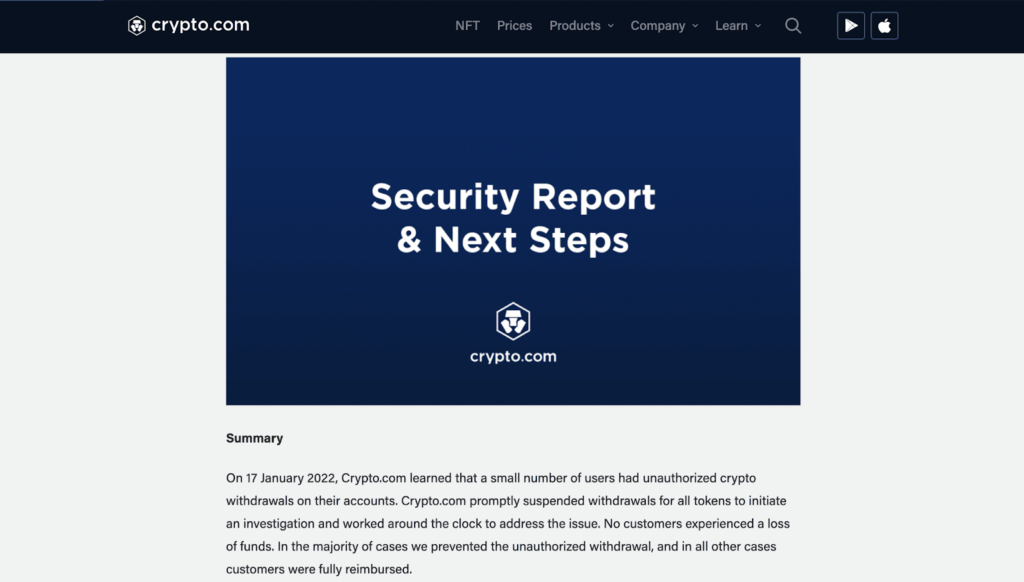The Top 10 weakest passwords of 2022 – Did your password made the list?
Weakest passwords: In the age of technology, having a secure password is becoming increasingly important. Unfortunately, many people still use weak passwords, leaving them vulnerable to attack. Protecting your information from malicious hackers is essential to maintain the safety and privacy of your online accounts. To help you stay safe, we’ve compiled a list of the top 10 weakest passwords of 2022 and how to make yours stronger. With this knowledge, you can protect yourself from hackers and other cyber threats. So, if you’re looking to make your passwords as secure as possible, read on to learn more!
The Top 10 weakest passwords of 2022
There are two types of people in this world: Those who have been hacked and those who will be hacked. The difference between the two groups is the way they protect themselves. If you use easy-to-guess, weak passwords, you may end up in the first group. That’s why ensuring your passwords are as secure as possible is essential. But how do you know if your passwords are strong enough? The answer lies in the top 10 weakest passwords of 2022. If any of these are part of your password strategy, you’re putting yourself at risk. To ensure you’re not hacked, here are NordPass’ 10 most common passwords in the world for this year:
password
123456
123456789
guest
qwerty
12345678
111111
12345
col123456
123123

Why weak passwords are dangerous
In order to understand why weak passwords are dangerous, you need to know how hackers break into accounts. There are a number of different methods hackers can use, but the most common one is a brute-force attack. Using this method, hackers use software to systematically try millions of different passwords until they find the one that works. Because of this, it’s important to make your passwords as strong as possible.
By using weak passwords, you’re drastically increasing the risk of your accounts being compromised. According to the 2022 password management surveyconducted by Bitwarden, an open-source password manager, approximately one-third of people surveyed in the U.S. revealed that their data had been compromised in the last 18 months. Furthermore, it was reportedthat almost 4,100 publicly disclosed data breaches occurred during 2022, quoting approximately 22 billion records being exposed. The cybersecurity publication from Security Magazine reportedthat the figures for 2022 are expected to exceed this figure by as much as five percent.

Different data leaks that happened in 2022
The Uber Attack: In September 2022, the firm experienced a complete security breach when a hacker managed to get into their internal networks. The attacker infiltrated Uber’s Slack workspace, cloud storage, G-suite tools, internal databases and employee dashboards. Even some of the largest companies suffered from data leads from bad password management tactics, resulting in enormous consequences.
Crypto.com data leak: At the start of the year, a severe data breach of Crypto.com left nearly 500 digital crypto wallets affected, with the cybercriminals taking away above $30 million in Bitcoin, Ethereum, and numerous other cryptos. Attackers managed to go around the two-factor authentication and directly access the user wallets.
Credit Suisse Data Leak: Cybercriminals managed to infiltrate the confidential computer systems of Credit Suisse and compromise many customer accounts, amounting to 30,000. The exposed information exposed different accounts of notorious war criminals, traffickers of human beings, unscrupulous authorities, and influential government officials.
The Marriot Data Leak: In July 2022, Marriott International confirmed that hackers had stolen 20 gigabytes of sensitive data in June 2022. The breach resulted from a social engineering attack in which an anonymous hacking group tricked an employee into granting them access.
LastPass password manager Data Leak: On December 22nd, LastPass released a blog post with additional details about a security breach which occurred in August 2022. The hacker could use data they acquired from the August intrusion to gain access to another staff member’s credentials and eventually infiltrate the password repository. It has been revealed that customer information was also exposed in the incident – most notably, a collection of encrypted password vaults.

Common mistakes made when creating passwords
There are a number of common mistakes people make when creating passwords. The most common mistake is using the same password for all your accounts. While it may seem like a good idea to use the same password for everything, it’s one of the worst practices regarding using safe passwords because it can increase your risk of being hacked across all your accounts. If someone breaks into one of your accounts and finds that you’ve used the same password for everything, it’s easy for them to break into the rest of your accounts. It only takes one weak link in the chain to break down your security, so it’s important to ensure each account has a strong password.
Another common mistake many people need to correct when creating passwords is reusing old passwords. If you’re like most people, there are probably a few passwords you’ve used for years. Unfortunately, if those passwords need to be stronger, they’re extremely easy to break. In fact, there are teams of hackers whose sole purpose is to break into accounts using weak passwords. By reusing old, weak passwords, you’re making their jobs a lot easier.

Best practices for Password Security
To stay away from increasing the existing number of attack cases, according to the yearly report published by NordPass, it is suggested that creating a difficult password of at least 12 characters which should include a combination of uppercase, lowercase, numbers and special characters, lowers the risk of getting the password leaked. A password generator is a useful tool for making such complex passwords on these occasions.
Additionally, reusing the same password for multiple accounts is not recommended, even though it is a widespread practice. The Bitwarden 2022 password management survey revealed that over 8 out of 10, users reuse passwords across websites. Meanwhile, 49% of the participants mentioned they depend on their memory to keep hold of their passwords. That brings us to another crucial part of password security: It may be beneficial to use a password manager, such as 1Password, NordPass or Bitwarden, to store and access passwords, which eliminates the unsteady nature of your memory.
Password managers are digital tools that store your passwords in a secure database, and they’re designed to make it easier to create and manage your passwords. They let you save all your login information in one place, so you don’t have to remember everything. Most password managers also have a password strength rating feature that shows you how strong your password is and when it is needed to change it.
What to do if your password is hacked
Unfortunately, even the best passwords aren’t 100% foolproof. If your accounts are hacked, there’s not much you can do to get your information back because the hurtful truth is that once your data is out there, there’s no getting it back. Luckily, as mentioned above, many valuable tactics exist that you can follow to ensure it doesn’t happen again or avoid it from happening in the first place. By following these tips, you can protect yourself from hackers and other cyber threats.
Because only with solid passwords can you rest easy knowing your accounts are safe!


